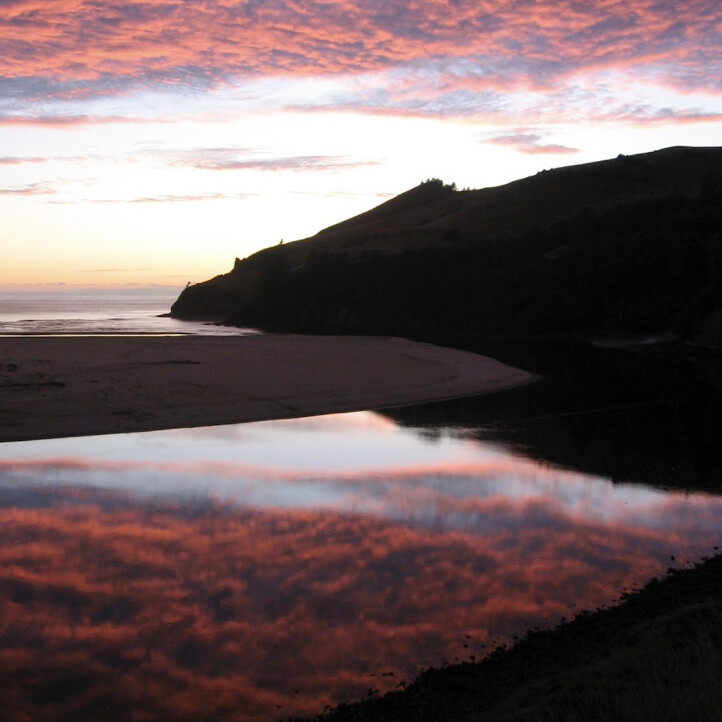Adhel Arop is a two time award winning filmmaker from Vancouver, Canada. She has been a poet since the age of eight, writing poems for conferences and school assemblies. She has always gravitated to poetry as a way to express and explore emotions.
Adhel’s documentary “Who am I?” weaves together her experience settling into Canada as a refugee with her family and her mother’s experience as a child soldier in South Sudan. We are excited to share two of Adhel’s poems, Sudan’s Echo and SPLA Song and a short interview with the artist about her influences and hope for her work.
PART I.
(This is the translated song that my mother and I sing at the end of the documentary.)
Sudan’s Echo
By: Adhel Arop
The sky weeps
my country screams
I watch in agony
the eyes of the people I love dearly tell stories of sadness
they are children
who have become broken adults
Now their children inherit that hurt
trauma becomes Sudan’s
greatest
Legacy
I remember the music that played in the background of my childhood
my mother seeking solace in the things that destroyed her
I would look into her eyes
Seeing the reflection of the skies
she once looks up to
her face
crying out as muffled voices screeches from the radio
eyes fading into an expression I could not understand.
We were strangers
she was strength
yet in her power I saw weakness
every day
I heard these muffled voices
Hopeful screams
they were my mother’s sense of home
she gave up her childhood for her country
within that exchange
her eyes stopped forming tears
while her soul drowned in agony
What has become of the person she wished to be?
I remember hearing the muffled voice of men
seeping out of the radio
the sounds lingered in the air
longer then the silent stares we exchange
I would whisper
“are you ok?”
She looked at me
our hearts exchanged words our mouths could not
never understood why these cassettes meant so much to her
How was I to know she had been a child soldier
These muffled voices of men screaming
were the songs that once kept her alive
at a time she wasn’t sure if she wanted live
I weep for her
because I know
she has lost her ability to shed tears for
herself….
SPLA War Song
South Sudan wo yay
SPLA wo yay
Karyom wo yay
Madeer dan wa
Leaders of Wau
Madeer Wau (region in Sudan)
Leaders of Wau
Meedeer dan Wau
Leaders of Wau
Ran Wau
People of Wau
Madder dan Malakal wandeed ku juba
Leaders of Malakal l And Juba
Loy by ka de ken pel a by
What are we doing to our country
bogou thiem chin te de e ya chol
You’ve left our country in shambles and have nowhere to call home
Maye maye maye
My god, My god
Maye maye maye
My god, My god
Meerder yat kwon acha keg pwol
You’ve homes, your province
Ke dom ke lwoy che by la tweng
and taken on jobs that wont help the country develop
E ke reg a de
What a terrible thing
Wed kwan Sudan
Children of Sudan
Howne a thiow thar a che la mang
That sounds of gunfire is going
Keg jej a Nemir
off as the soldier fight against us
Sonke sonke A mane a Nemir jol ke moge a choge
Nemir will hate it but we will take our country back
Bunge Kwan yin kej waii kuwa teng
Governor Haven’t you seen us we are dying
pinge by Sudan a riag bange da
Our Country is in shambles
pinge bwog liew
We can’t move forward
kowo che jur Maraleen Jok Kwa nhin win a Bol
we can’t take back our country when most of us have died
The arabs have chased us out
Kwa Nhin son of Bol
Name of Leader
Maye maye
my God, My Gd
Leke John Karang Leke John Karang bwog loy ke de Na ye piang da
Tell John Karang how will we take back our land,
Bunge Kwa nin kej wei kwa teng binge by Sudan a riag bange da
Governor Kwanin haven’t you seen us, haven’t you seen our country we are dying
pinge bwog liew kowo che jur
How will we take back our country when many of us have been killed by soldiers
Maraleen Jok Kwa nhin win a Bol
Tell us
Maya maya maye
My God, My god
Leke John Karang bwog loy ke de Na ye piang da
Tell John Garang what will we do to get back our land?
Nhwen a thow bwog rod nyia wei
When it comes our land We will die for it
Ghwen a thow wed kwan e two
You will only take our country over our dead bodies
Gwen a thow wed kwan Janub
We choose death, our life is our country
Biange john garang ina choge mouthe mathu biange da
John Ganag we salute you,
Ka pae ka dianhg owa nug neen jwij
its been 3 month we’ve been walk and we are tired
PART II.
Interview
Sadia Hassan: Adhel, I just watched your moving documentary. It is so full of love for your mother and you all’s shared language and common history. I grew up in Clarkston, GA where my family and I were resettled as refugees in the mid 90’s. I had lots of friends from Sudan and Gambia. Your documentary reminded me so much of what it was like (and honestly, still like) to grow in that middling place of multiple identities.
What of your work in the world inspired these poems?
Adhel Arop: My documentary “Who Am I” is the film to my poetry, I wrote these poems while creating my first film, I used them to hire collaborators, the set the tone for all my present work, I learned to translate Dinka (my native tongue) I got a deeper for my language, opening me up to a whole new world of stories, the history of my country South Sudan and my mother and aunts apart of the liberation movement, this feminine power in the face of war gave me courage to explore my mothers trauma.
SH: What do you hope readers will walk away with?
AA: I hope they hear the hope that echoes through time, the songs that my mother sang as a child soldier are now interweaved into my artistic platform raising my success as a filmmaker while honouring my roots. These types of stories are not unique. War and displacement have affected many countries and their development is intergenerational trauma something we all can connect to one way or another.
SH: In the age of climate change, what do you feel the world owes Sudan?
AA: I wont say the world owes Sudan anything, war owes Sudan peace. Centuries of fighting with the division between the majority Islamic North and a Christian South, one that led to two civil wars, leading to a referendum in 2009; these issues birthed a new nation called South Sudan, the newest country to join the UN, A country that has been plagued by civil war and continues the unrest after the referendum. These two nations, Sudan and South Sudan, are going to be heavily affected by the climate change.
The South is still on a first wave of industrial revolutions. I hope the world will aid Sudan and South Sudan in exploring solar energy for infrastructure building. As a human rights activist, I believe that at-risk countries need our support. They are behind on technology because of on-going war and with climate change and their effects will take have some concerning repercussions for at risk countries and Sub-Saharan Africa, the world should aid Sudan & South Sudan on their Sustainable Development Goals and infrastructure building through the use sustainable options such as Solar Energy, I hope the countries will be offered a voice and connected in the fight for Climate change as leaders.
SH: Can you tell us a little about a community practice you have that has inspired your art-making?
AA: I have been a volunteer mediation instructor on the downtown eastside, Karma teachers is a non-profit studio and teacher training school. Volunteering for the past eight months has provided an inside look at what goes into running a yoga studio the community that gathers. We all volunteer our time and help one another, It’s inspired my art to be involved in a community, my art has grown significantly through the developing love of all the communities I’ve been a part of. My art is to raise people’s voices that were once silenced through multiple digital mediums.
SH: What was your experience translating Dinka with your mom and what do you think the world of translation can do for us in terms of empathy and connecting with each other?
AA: Translating was definitely difficult when I originally took on the task, I translated over 40,000 words from Dinka to English. I would call my mom and ask her to re-pronounce certain words or songs. Dinka has several accents and I spoke/understood one certain accent, but after hours and hours of listening to different people speaking the language, I managed to have an easier time. I think that understanding breeds empathy and connection because it allows us the ability to understand each other. Learning Dinka more intensely has made me feel more connected to my mother. It gave us something to do together. People from my community have really been happy with my interest in exploring the culture and language, providing me with opportunities within the community to learn to speak and translate the language.
SH: Sudan’s Echo is entirely in English while SPLA Song almost feels like a call and response between English and Dinka. What feelings were you trying to evoke with each poem? Are they in conversation with each other?
AA: In Sudan’s Echo the scene is set in my childhood, on any given day you would find my mother cooking and drifting off to the sounds that poured out of the radio I wasn’t aware at the time but the songs she listened to were songs from her time in the SPLA. This particular song is actually my mother’s favorite song so I decided to use it for the foundation of work pertaining to the SPLA and child soldiers. My mother and her friends from the war spend hours on the phone singing to one another in conferences even until the current day, it always sounded like muffled voices until I could understand the language in more detail as an adult. So creating this piece of poetry alongside translated war songs are my attempt to provide what it feels like to have a traumatized mother with a secret past, you always knew there was something off but it took years to uncover the mystery. It has given me so much healing to explore these stories of my past, finding creative ways to translate my experience has been the most exciting part for me. These two pieces of work are in conversation because the SPLA Song when performed join together, I sing the songs and recite the poetry when I have speaking engagements I will perform the works together.
Related Posts
November 4, 2024
Receiving Love and Care: A Liberatory Practice
June 21, 2024



